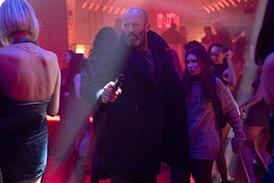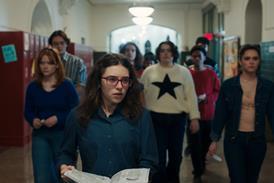Joe Swanberg never wanted to change the world or rewrite the rules of cinema. He simply wanted to make movies, preferably on his own terms with a group of friends and collaborators.
A Chicago-based independent film-maker, Swanberg has not only staked out a niche identity that has attracted a modicum of critical notice and professional regard. He has just delivered a decisive one-two punch, having witnessed the New York opening of his third feature, Hannah Takes The Stairs and the simultaneous DVD launch of his second feature LOL, the inaugural release of the New York label Benten Films. He is also in post on his fourth film, Nights And Weekends.
It is all pretty thrilling for somebody who won't turn 26 until the end of August.
"I feel a little naive," he says, shyly.
Swanberg is emphatically a product of his times, an ambitious and natural hustler who belongs to a loose fraternity of similarly determined film-makers - such as Andrew Bujalski (Mutual Appreciation), Aaron Katz (Dance Party USA) and the Duplass brothers (The Puffy Chair) - who work on each other's films and have some of the same producers, such as Dia Sokol or Anish Savjani of Film Science. The movies have attracted the label mumblecore.
They all deftly utilise digital technology to produce, market and distribute their work on emerging platforms to an evolving and sophisticated market. IFC First Take is releasing Hannah Takes The Stairs, Swanberg's first film shot in high definition; the company will also make it available on its pay per view and video on demand.
The story tracks the romantic and artistic travails of Hannah (Greta Gerwig), an aspiring playwright working at a Chicago production company. Her shifting romantic interest in co-workers played by Bujalski and Kent Osborne threatens to unravel friendships.
It is the first of his films to receive a significant national release. Like all of Swanberg's work, the movie shatters the boundaries of fiction and documentary. Even though the film was made for five figures, it has a highly professional, accomplished look. Swanberg convened his actors in a Chicago apartment, and shot the movie in about a month, amassing 21 hours of footage that he shaped into an 84-minute film. Swanberg works without a script, inviting mostly non-professional actors to shape their characters through personal experience: "I'm looking for people to tell their own story and use a lot of elements of their own life to bring something new or different to the character."
He eschews rehearsals: "I'm afraid they're going to do something in rehearsals and they're going to lose the essence of it once we start filming." A recurring theme in his work has been the way technology both inhibits and facilitates communication between men and women.
"The impulse at first was to get out and make something," he says. "It also came out of frustration at the way people of my generation were shown in movies, particularly relationships. The representations were either pornographic on one end or glossy Hollywood on the other, and neither seemed realistic to me."
There is a freedom in much of his work, pivoting on the expressiveness of performers who are very comfortable with cameras. "Everybody carries digital cameras or cellphones that take pictures or video," says Swanberg. "There's a sense of people willing to open up in front of the camera. Everybody's an extrovert."


















No comments yet